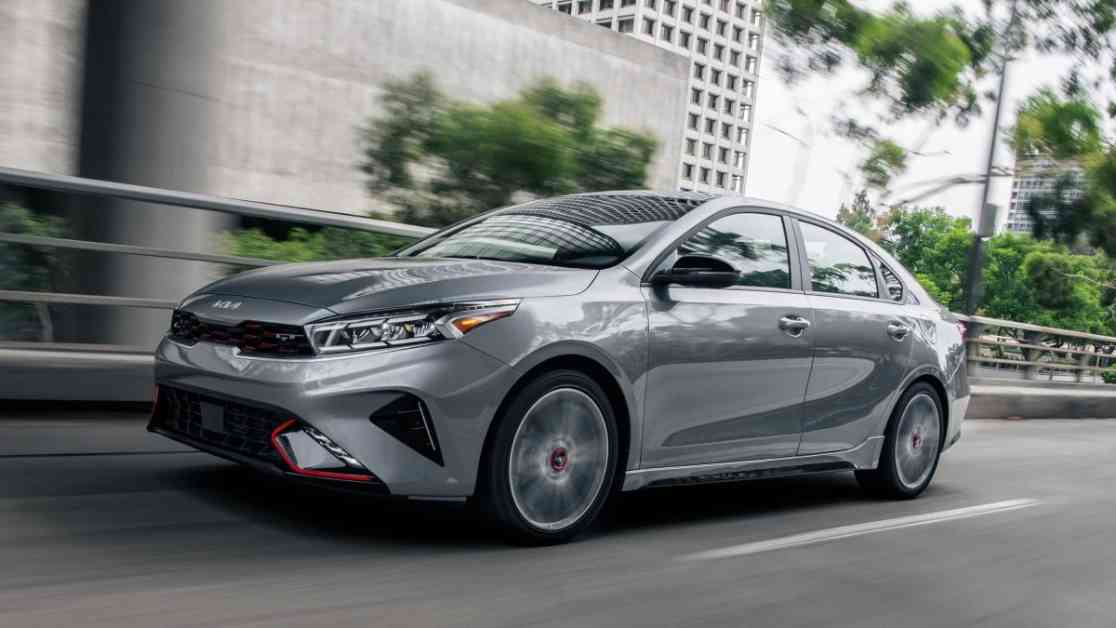Top Vehicles with the Most Comfortable Seats in 2021 – Autoblog
When it comes to purchasing a new vehicle, there are many factors to consider – fuel efficiency, safety features, technology options, and of course, comfort. One of the most important aspects of a car’s comfort level is the quality of its seats. After all, the seat is the primary point of contact between the driver and the vehicle, so it must be comfortable and supportive for long drives.
J.D. Power’s 2024 Seat Quality and Satisfaction Study shed light on the significant strides automakers have made in improving seat comfort. However, the study also revealed that many buyers are still dissatisfied with the quality of their vehicles’ headrests. Owners who reported headrest issues often experienced other seat-related problems, with a rate of 6.7 problems per 100 units. In contrast, those who were satisfied with their headrests only reported 1.0 problems per 100 units, indicating a higher overall satisfaction with the seats.
According to Ashley Edgar, senior director of automotive benchmarking at J.D. Power, headrest adjustability is a crucial factor that can greatly impact the overall seat experience. She emphasized the importance of manufacturers prioritizing headrest design to ensure optimal comfort for drivers and passengers. Without a proper headrest, overall seat comfort may be compromised, even if other aspects of the seat are of high quality.
J.D. Power’s seat rankings are divided into different segments, with winners in each category based on their performance in the study. Here are some of the top vehicles with the most comfortable seats in various segments:
Mass-Market Small/Compact Car:
– Kia Forte: 6.5 problems per 100 units
– Nissan Versa: 6.9 problems per 100 units
– Subaru Impreza: 9.0 problems per 100 units
Mass-Market Midsize/Large Car:
– Kia K5: 5.5 problems per 100 units
– Toyota Camry: 8.5 problems per 100 units
– Chevrolet Camaro: 8.8 problems per 100 units
Mass-market SUV and Truck/Van:
– Subaru Forester: 5.4 problems per 100 units
– Chevrolet Equinox: 6.4 problems per 100 units
– Chevrolet Trax: 6.6 problems per 100 units
Mass-market Midsize/Large SUV:
– Chevrolet Traverse: 6.3 problems per 100 units
– Nissan Murano: 6.6 problems per 100 units
– Ford Explorer: 7.2 problems per 100 units
Mass-Market Truck/Van:
– Ram 1500: 4.1 problems per 100 units
– Chevrolet Silverado: 5.6 problems per 100 units
– Chevrolet Silverado HD: 6.4 problems per 100 units
Premium Car:
– Audi A5: 3.8 problems per 100 units
– Porsche Taycan: 4.5 problems per 100 units
– Porsche 911: 4.7 problems per 100 units
Premium SUV:
– Porsche Cayenne: 4.0 problems per 100 units
– BMW X3: 4.6 problems per 100 units
– Porsche Macan: 5.1 problems per 100 units
It’s worth noting that the study included seat manufacturers, most of which were third-party companies separate from the automakers. For example, Adient manufactured the seats for the Kia K5 and Toyota Camry, while Lear Corporation produced the seats for the Chevy Equinox, Ford Explorer, both Chevy trucks, and all models in the Premium Car segment.
Seat Comfort Innovations
In recent years, automakers have been focusing on incorporating innovative features to enhance seat comfort and overall driving experience. Some of the latest advancements in seat technology include:
– Massage Functions: Many luxury vehicles now come equipped with seats that offer massage functions to help reduce driver fatigue during long trips. These seats often have multiple settings and intensities to cater to individual preferences.
– Adjustable Lumbar Support: Proper lumbar support is essential for maintaining good posture and preventing back pain. Seats with adjustable lumbar support allow drivers to customize the level of support to suit their unique needs.
– Ventilated Seats: Ventilated seats use fans or air channels to circulate air through the seat cushion, helping to keep drivers and passengers cool and comfortable, especially during hot weather.
– Memory Foam Padding: Memory foam padding molds to the body’s contours, providing personalized comfort and support. Seats with memory foam padding can help reduce pressure points and enhance overall comfort on long journeys.
Future Trends in Seat Design
As technology continues to advance, we can expect to see even more exciting developments in seat design that prioritize comfort, ergonomics, and customization. Some future trends in seat design may include:
– Smart Seats: Smart seats equipped with sensors and artificial intelligence can adjust automatically to optimize comfort based on the driver’s posture, weight distribution, and driving habits.
– Adjustable Bolstering: Seats with adjustable bolstering allow drivers to customize the level of side support to suit their driving style and preferences, providing a more personalized seating experience.
– Active Seat Cushions: Active seat cushions use air chambers or other mechanisms to provide dynamic support that adjusts in real-time to the driver’s movements, helping to reduce fatigue and improve comfort.
– Sustainable Materials: With an increasing focus on sustainability, automakers may start using eco-friendly materials in seat construction, such as recycled fabrics, natural fibers, and bio-based foams.
In conclusion, seat comfort is a crucial factor that can greatly impact the overall driving experience. With automakers continually striving to improve seat quality and satisfaction, drivers can expect to enjoy even more comfortable and supportive seats in the future. By prioritizing headrest adjustability and incorporating innovative features, manufacturers can ensure that their vehicles provide the utmost comfort for drivers and passengers alike.










